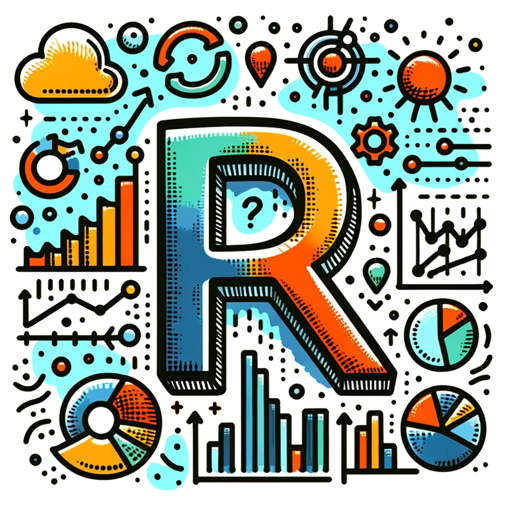analysis-AI-powered text analysis assistant
AI-Powered Analysis for In-Depth Insights
Can you explain this concept from my research paper?
What's the significance of this finding in the study?
How does this theory apply to my topic?
Can you help interpret these research results?
Related Tools
Load More
Data analist: Excel en CSV analyse 🤖🕵️
Upload uw Excel- of CSV-bestand en vertrouw op mijn expertise voor geavanceerde data-analyse en -visualisatie. Met deze GPT-technologie is het mogelijk om zonder ingewikkelde instructies direct inzicht te krijgen in uw data.

Data Analyse
Data Science Expert analyzing user-uploaded data to provide accurate insights.

Analysis with R
An expert in data analysis using the R programming language.
Analysis
Analytical problem-solver, generating and evaluating solutions.

Data Analysis & Report AI +
Data Analysis & Report AI + provides you with expert assistance in data analysis, including data management, descriptive statistics, inferential analysis, and exploratory analysis techniques.

A Data Analyzer
Expert in Data Analysis and Visualization
20.0 / 5 (200 votes)
Introduction to Analysis
Analysis refers to the systematic examination and breakdown of complex information or topics to understand underlying patterns, relationships, or structures. The core function of analysis is to help clarify complicated subjects, identify key insights, and guide decision-making based on data or research findings. In this context, analysis can refer to a broad range of methodologies such as data analysis, literary analysis, policy analysis, and more. It often involves critical thinking, comparison, pattern recognition, and synthesis of information from multiple sources. For example, in a research paper on climate change, analysis might involve breaking down the factors contributing to global temperature rise by reviewing scientific literature, comparing data on emissions from different regions, and synthesizing findings into a coherent argument. Another scenario could involve analyzing market trends to help a company predict future consumer behavior by evaluating historical sales data and economic indicators.

Main Functions of Analysis
Data Interpretation
Example
An analyst reviews a dataset showing the impact of urbanization on water consumption. By interpreting the data, the analyst identifies patterns showing a significant rise in water use in areas with rapid urban expansion.
Scenario
In urban planning, city governments use analysis to understand how population growth and development affect resource allocation. This data interpretation helps them create policies that ensure sustainable water usage in fast-growing areas.
Comparative Analysis
Example
A policy researcher compares healthcare outcomes in two countries with different healthcare systems—one with universal healthcare and one based on private insurance.
Scenario
In public policy design, governments might rely on comparative analysis to evaluate the strengths and weaknesses of healthcare systems across countries, helping them decide which model could be best adapted to their own populations.
Hypothesis Testing
Example
A scientist analyzing genetic data runs statistical tests to determine whether a specific gene variant is linked to increased risk of a certain disease.
Scenario
In biomedical research, hypothesis testing helps scientists confirm or refute theories about disease mechanisms. This method is critical in developing new treatments or identifying at-risk populations.
Ideal Users of Analysis Services
Academic Researchers
Academic researchers benefit greatly from analysis services as they often deal with large sets of complex data or theoretical concepts that require critical examination. Analysis assists them in breaking down scholarly articles, synthesizing findings, and ensuring their hypotheses are supported by evidence. For example, a researcher studying social trends would use comparative and statistical analysis to understand patterns in societal behaviors over time.
Business Professionals and Policy Makers
Business professionals, such as financial analysts or market researchers, use analysis to assess economic trends, investment risks, and consumer behaviors. For policymakers, analysis is key to understanding the potential outcomes of new regulations or initiatives. Both groups rely on rigorous data interpretation and scenario modeling to make informed decisions. For example, a financial analyst would analyze historical market data to guide investment strategies, while a policymaker might study the effects of past regulations to draft new policies.

How to Use Analysis Effectively
Step 1
Visit aichatonline.org for a free trial without login, also no need for ChatGPT Plus.
Step 2
Define your objective—whether it's analyzing a research paper, generating detailed explanations, or dissecting complex topics—so that the tool can guide you to the most relevant features.
Step 3
Input your query or upload content directly, such as text from academic papers, research projects, or questions for a deeper understanding of a particular subject matter.
Step 4
Use the analysis tool’s breakdown features to dissect key components of your query or text. It provides detailed insights with citations, comprehensive responses, and clarity across complex topics.
Step 5
Review, refine, and apply the analysis provided, whether you're working on academic papers, conducting research, or seeking a deeper understanding of any complex concept.
Try other advanced and practical GPTs
Literary Analysis
AI-powered insights for literary analysis

Statistical Analysis
AI-Powered Statistical Insights

Analysis
AI-Powered Problem Solving for Everyone

Socratic Learning
AI-powered learning through reflection

AI Remover
AI-Powered Editing for Human-Like Writing

股票分析专家
AI-driven stock analysis for precise market insights
Osint Analysis
AI-powered Open Source Intelligence Tool.

Metagenomics Analysis
AI-driven metagenomics insights for all

Feature Extraction
AI-driven feature extraction for smarter insights.

Fundamental Analysis
AI-powered financial insights.

Copywriting Carrossel
AI-powered copywriting for Instagram success

バズワード職人
AI-driven tool for creating engaging, buzz-worthy titles.

- Research Assistance
- Learning Support
- Paper Analysis
- Content Breakdown
- Detailed Explanation
Common Questions About Analysis
How does analysis help with academic research?
Analysis assists by breaking down complex topics, offering comprehensive explanations, and helping users dissect academic texts, research papers, or other complex material. It allows for detailed summaries, critical analysis, and topic exploration, making it a valuable tool for academic use.
Can analysis help with understanding scientific papers?
Yes, analysis can break down intricate sections of scientific papers, explain terminology, and highlight key insights. It is particularly useful for interpreting dense data or jargon-heavy materials, offering easier comprehension of scientific research.
What kind of content can be analyzed?
The tool supports a wide range of content, including academic papers, essays, research questions, detailed inquiries into specific topics, or even personal projects requiring in-depth analysis and clarification.
Does analysis provide references and citations?
Yes, when applicable, analysis provides citations, sources, and references to back up its responses. This feature is crucial for academic writing and research integrity, ensuring all explanations are well-supported by existing literature.
How does analysis enhance learning?
Analysis offers a tailored learning experience by breaking down complex information, answering specific queries, and providing detailed insights. It helps users grasp difficult concepts faster, with thorough explanations and an evidence-based approach.